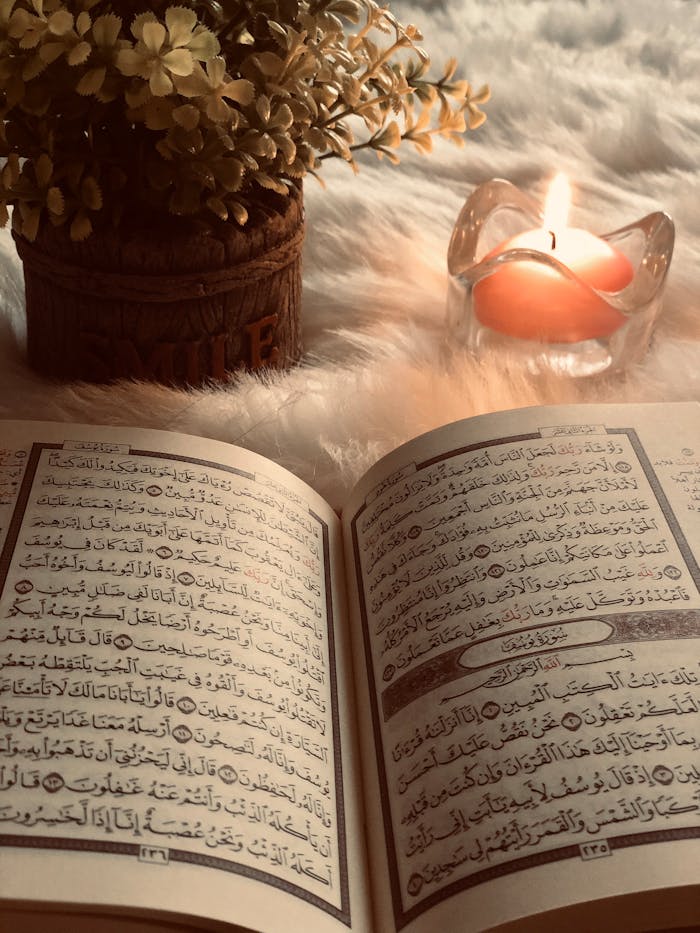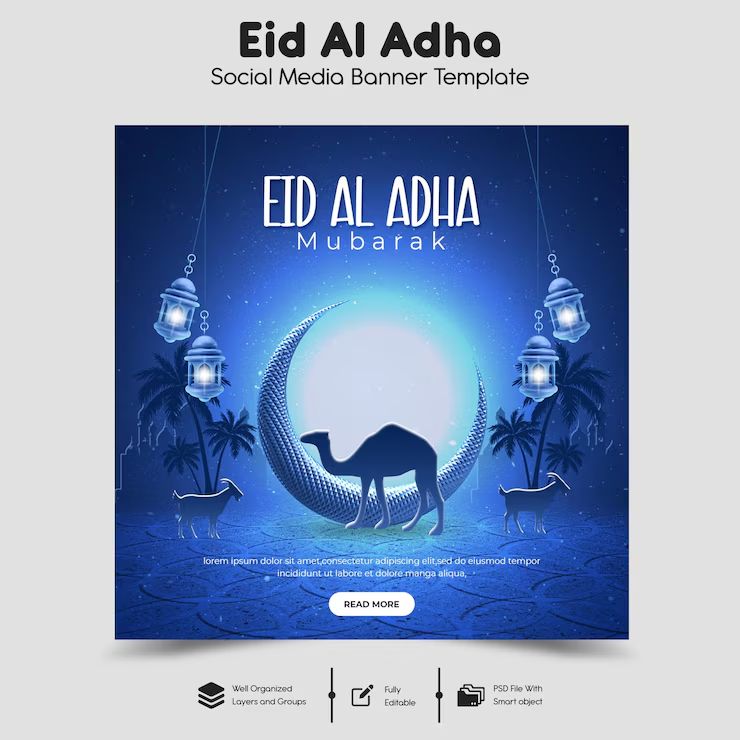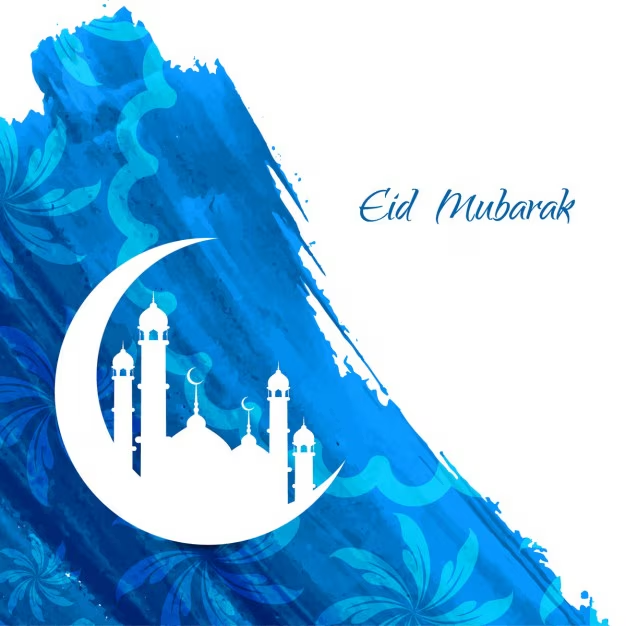The Lunar Calendar and Eid Dates
Eid al-Adha, also known as the Festival of Sacrifice, is one of the most important Islamic holidays celebrated in Pakistan. The exact date of Eid al-Adha in Pakistan varies each year, depending on the lunar Islamic calendar. The celebration begins on the 10th day of Dhul-Hijjah, the 12th and final month of the Islamic year. Since the Islamic calendar is based on the sighting of the moon, the date of Eid al-Adha changes every year and is confirmed only after the moon is sighted.
In Pakistan, religious scholars and moon sighting committees observe the moon to officially announce the date. The Eid holidays are eagerly anticipated by the public as it is a time of religious devotion and social gathering.”Eid al-Adha kay is paak moqay par log na sirf qurbani kartay hain balkay Islami taleemat aur Qurani ahkamaat ko samajhnay ki koshish bhi kartay hain. Agar aap Qurani taleem hasil karna chahtay hain to iQuranEducation.com par visit karain.
Expected Date of Eid al-Adha in 2025
In 2025, Eid al-Adha is expected to fall around the middle of June, though the exact date will be confirmed by the Central Ruet-e-Hilal Committee. This committee is responsible for announcing the beginning of each Islamic month in Pakistan. Eid al-Adha typically falls one day after it is celebrated in Saudi Arabia, as Pakistan often announces the Eid date based on local moon sightings.
Therefore, the final decision depends on visibility reports from across the country. Once the moon is sighted, the government makes an official announcement and declares public holidays accordingly. The anticipation of Eid creates a spiritual and festive atmosphere across the country, as people prepare for the special day.
Connection with Hajj and Preparations
The date of Eid al-Adha holds great significance for Muslims as it marks the culmination of the annual Hajj pilgrimage in Mecca. Those who are not on Hajj also partake in the celebrations in their home countries, including Pakistan. People begin preparations weeks in advance by buying animals for sacrifice, arranging family gatherings, and purchasing new clothes.
The holiday typically lasts for three days, during which people perform the Eid prayer, offer sacrifices, and distribute meat among family, friends, and the less fortunate. Public and private institutions declare holidays, and there is a general spirit of generosity and compassion in the air. Many individuals also use this time to strengthen community bonds and engage in charitable acts.
National Holidays and Travel Activities
The government of Pakistan declares Eid holidays a few days before the confirmed date of Eid. These holidays usually include the day of Eid and the two days following it. During this time, most businesses, government offices, and educational institutions remain closed. In major cities and towns, there are noticeable changes in daily routines as people travel to their hometowns to celebrate with family.
The transportation system becomes busier, and markets become vibrant with people shopping for food, clothing, and gifts. The local economy sees a significant boost due to the high level of consumer activity. Families spend this time together in prayer, feasting, and reflecting on the values of sacrifice and gratitude.
Cultural Diversity in Celebrations
Eid al-Adha is not only a religious event but also a cultural celebration in Pakistan. Each region in Pakistan has its own customs and traditions associated with Eid, adding diversity to the celebrations. For instance, people in Punjab might prepare traditional dishes like biryani and kebabs, while those in Khyber Pakhtunkhwa may celebrate with local flavors and communal feasts. Despite the regional variations, the essence of the celebration remains the same—honoring the spirit of sacrifice and unity. Media channels, including television and radio, broadcast special Eid programs and religious content to enhance the festive mood. Overall, the celebration of Eid al-Adha brings together people from all walks of life in a shared expression of faith and community.
The Role of Moon Sighting Committees
As the date of Eid al-Adha draws near, people eagerly await the moon sighting announcement. Social media platforms buzz with speculations and updates related to the Eid date. Families finalize their shopping and begin making arrangements for the Eid prayer and the Qurbani ritual.
The environment becomes filled with excitement and spiritual preparation. Mosques begin to conduct special prayers and sermons related to the significance of Eid and the story of Prophet Ibrahim’s devotion to Allah. With everyone looking forward to the joyous day, the spirit of anticipation grows stronger. The festival serves as a reminder of faith, obedience, and the importance of helping those in need.
Traditional and Scientific Approaches
The determination of Eid al-Adha’s date in Pakistan is a process that involves both scientific methods and traditional practices. While some rely on astronomical calculations to predict the date, the official confirmation is based on physical moon sighting. This dual approach sometimes leads to differences in observance across regions. Nevertheless, the unity of purpose and the communal spirit of the celebration remain strong. The announcement of the Eid date marks the beginning of several days of joy, devotion, and family bonding. As the people of Pakistan prepare for this sacred occasion, they reflect on the deeper meanings behind the rituals. Eid al-Adha remains a powerful symbol of sacrifice, humility, and compassion.
Why Do We Celebrate Eid al-Adha?
Honoring the Faith of Prophet Ibrahim
Eid al-Adha is celebrated by Muslims around the world, including Pakistan, to honor the unwavering faith and obedience of Prophet Ibrahim (Abraham). According to Islamic tradition, Allah commanded Ibrahim to sacrifice his beloved son, Ismail, as a test of faith. As Ibrahim prepared to fulfill the command, Allah intervened and provided a ram to be sacrificed instead. This act of devotion and surrender to the will of Allah is commemorated by Muslims during Eid al-Adha. The celebration serves as a powerful reminder of the importance of faith, sacrifice, and submission to God’s will. It teaches believers to prioritize their spiritual obligations over worldly attachments.
The Significance of Qurbani
The ritual of animal sacrifice, known as Qurbani, is central to the celebration of Eid al-Adha. Muslims who can afford it are required to sacrifice an animal such as a goat, cow, or camel. The meat is then divided into three parts—one for the family, one for relatives and friends, and one for the poor and needy. This practice symbolizes generosity, compassion, and social responsibility. By sharing the sacrificial meat, Muslims strengthen community ties and ensure that everyone can partake in the joy of Eid. The act of sacrifice also serves as a means of spiritual purification and a reminder of the values of humility and gratitude.
Connection with Hajj Pilgrimage
Eid al-Adha is also deeply connected to the Hajj pilgrimage, which is one of the five pillars of Islam. Every year, millions of Muslims travel to Mecca to perform Hajj, which concludes with the celebration of Eid al-Adha. Those who are not on pilgrimage celebrate the occasion in their home countries by observing special prayers and offering sacrifices. The synchronization of Hajj and Eid underscores the unity of the Muslim Ummah and the shared commitment to the teachings of Islam. It also highlights the global nature of the celebration, as Muslims everywhere commemorate the same historical event. Through this shared observance, the spirit of brotherhood and faith is strengthened among believers.
Eid Prayer and Sermons
The Eid prayer is a significant aspect of the celebration and is usually performed in large congregations at mosques or open grounds. The prayer is followed by a sermon that reflects on the lessons of Eid al-Adha and the importance of sacrifice in a Muslim’s life. It is a time for collective worship and reflection, where people come together to express their devotion and gratitude to Allah. The atmosphere during the prayer is filled with a sense of unity, peace, and spiritual elevation. After the prayer, families return home to perform the Qurbani and begin the day’s celebrations. This communal act of worship reinforces the sense of belonging and shared faith.
Family, Community, and Festivities

In addition to its religious significance, Eid al-Adha is a time for families and communities to come together in joy and celebration. People visit relatives and neighbors, exchange greetings, and share festive meals. Traditional dishes are prepared, and homes are decorated to mark the special occasion. Children receive gifts and money, known as Eidi, adding to the festive spirit. The holiday provides an opportunity to strengthen familial bonds and foster a sense of community. It is also a time for introspection, where individuals reflect on their faith and the importance of living a righteous life. The celebration creates lasting memories and reinforces moral and ethical values.
The Broader Message of Sacrifice
The message of Eid al-Adha goes beyond the act of sacrifice and encompasses a broader spiritual and social lesson. It teaches Muslims to be selfless, to support the less fortunate, and to live in accordance with the principles of Islam. The values of empathy, generosity, and obedience to Allah are at the core of the celebration. Through acts of charity and kindness, Muslims demonstrate their commitment to these values. The festival encourages believers to purify their hearts, strengthen their faith, and contribute positively to their communities. It is a time to renew one’s spiritual goals and reaffirm the essence of Islamic teachings.
A Festival of Faith and Unity
Eid al-Adha remains one of the most significant and cherished festivals in the Islamic calendar. Its observance in Pakistan reflects a deep-rooted cultural and religious heritage. From the moon sighting to the final day of celebration, every aspect of Eid al-Adha is imbued with meaning and purpose. The holiday brings people together in worship, sacrifice, and celebration, reinforcing the bonds of faith and humanity. As Muslims around the world celebrate this sacred occasion, they are reminded of the enduring legacy of Prophet Ibrahim’s devotion and the timeless values of Islam. Eid al-Adha is a profound expression of faith, love, and unity in the service of Allah.


